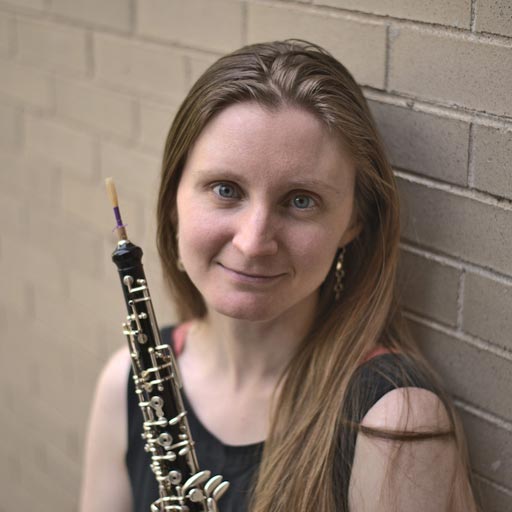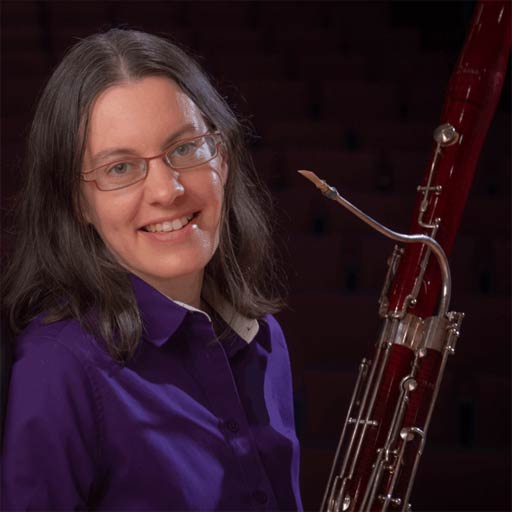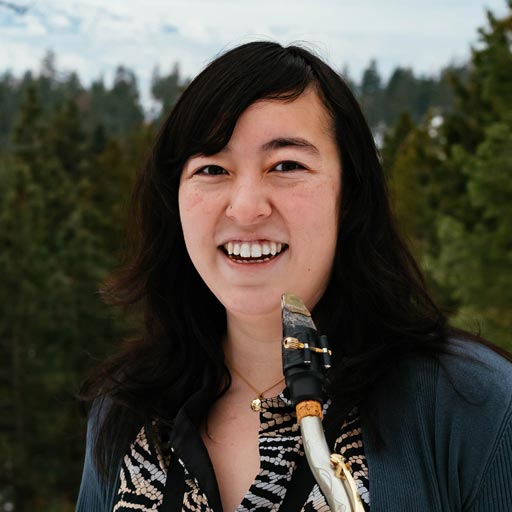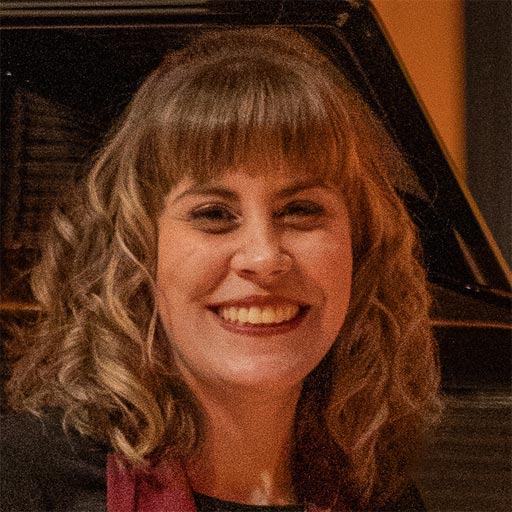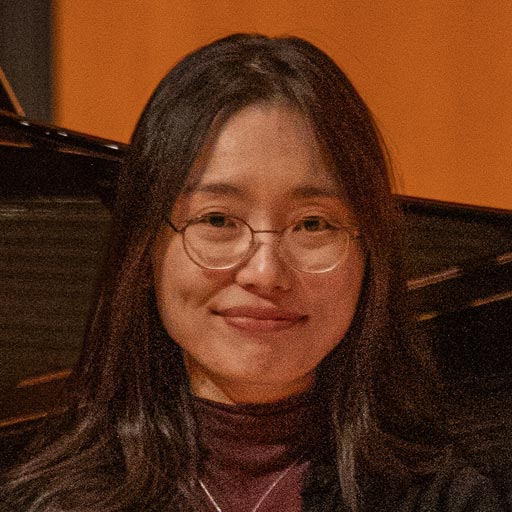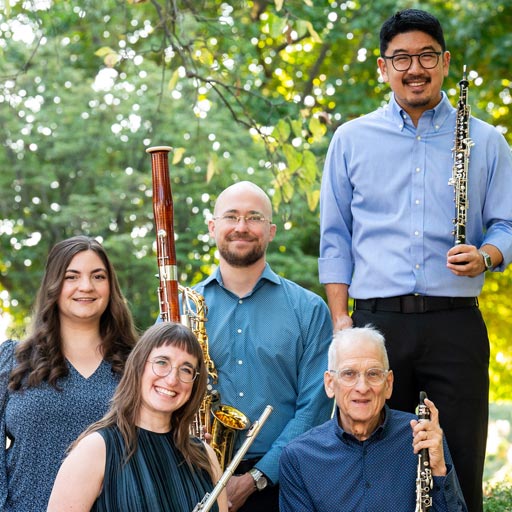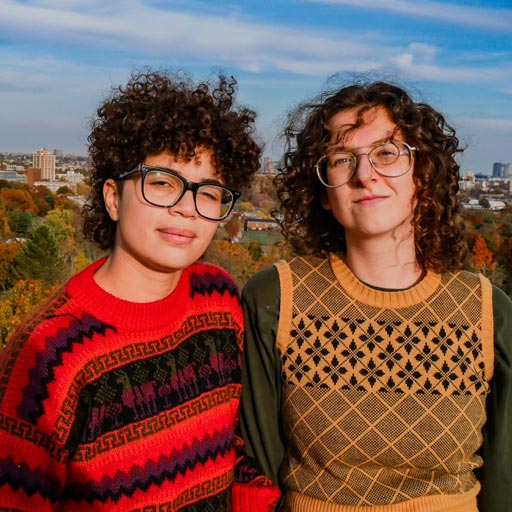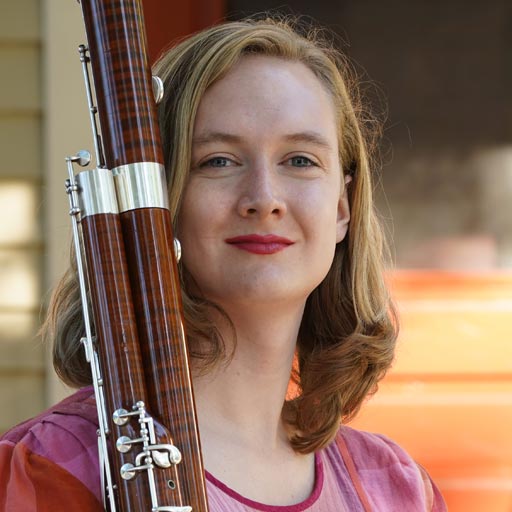Katherine Pukinskis
Katherine Pukinskis she/her (b. 1986) is a composer-scholar based in Pittsburgh, Pennsylvania. Dr. Pukinskis has had works premiered by eighth blackbird, Quince Contemporary Vocal Ensemble, Akron Symphony Chorus, and the Spektral Quartet, as well as by members of Ensemble Dal Niente and the Chicago Symphony Chorus. Commissioning ensembles include the San Antonio Symphony, Mendelssohn Choir of Pittsburgh, Akropolis Reed Quintet, Agarita Chamber Players, the Esoterics Choir, and Nuorten Kuoroliitto (Helsinki Finland).
An advocate of under-represented and under-respected voices in Western classical music, Pukinskis’s work often brings unlikely text or content into conversation in the concert hall. A 2016 commission by La Caccina sets a mosaic of unwelcome comments often directed at women in We Are: a 2019 project was started by a commission from the Esoterics in Seattle where Pukinskis excerpts from dissents written by the female Supreme Court Justices of the United States (A Choice Informed). The first piece in the project tackles the 2014 Burwell vs. Hobby Lobby case in which Associate Justice Ginsburg wrote a dissent against the ruling—Justice Ginsburg’s writing supports a woman’s right to make an informed choice. The second set of works, titled A Sense of Decency, was a commission from the Radcliffe Choral Society in Cambridge MA; the two-movement work for treble choir and string quartet attends to a woman’s right to access education, and the influence of religion on American veteran memorials. Additional pieces in the project set texts by Justices Sotomayor and Kagan in response to more recent legislation (TX SB-8).
In addition to an active engagement with present social climates, she acknowledges the deep individuality and personal exploration of writing music. From the composer: “In the broadest sense, nature, the human experience, and heritage are the three driving factors of inspiration for the creation of new music. I am gratified by the immediacy of effect when we listen to music, and I cherish its lingering forces well after the sound is gone. For me, no music is absolute; I do not live in a vacuum devoid of outside stimuli, nor can I exclude portions of myself in the act of creating music. While it is rarely my intention to compose a direct response to a specific experience, philosophy, or work of art, the moments of our lives leave a residue on our future thoughts. This residue is for me found predominantly in the natural world and in ancestral heritage--it is what sparks the inspiration to compose.
“It is extremely important to me in the creation of new music to take into great account what it feels like for the performer to realize these sounds, and what it does to the audience to watch musicians make music. Music is consumed not just with our ears, but, if we are willing, our whole selves. For this reason, physicality of performance often drives the crafting of gesture; always at the base of my composition is the question “what does this feel like to play? To hear?” Drawing upon our physical experiences in both the corporeally internal and the outside worlds, I aim to musicalize such physical experiences; music, just like film or dance, has the power to move us in ways that reach well beyond our seats in a concert hall.”
Both her work in composition and research explore storytelling and voice—tracking how words and ideas travel in music, through bodies, across the world, and over time. Dr. Pukinskis is an Assistant Professor of Composition and Theory at Carnegie Mellon University. She has previously taught at Amherst College, the Longy School of Music, the University of Chicago, and Harvard University. Her scholarly research revolves around notions of cultural identity, diaspora, traditional folk and choral music, and activism, with particular emphasis on choral traditions in Latvia and 20th-century American Art Song. She has presented her research across the United States and Europe in conferences, pre-concert lectures, and invited talks.
Close
 Donations
Donations


